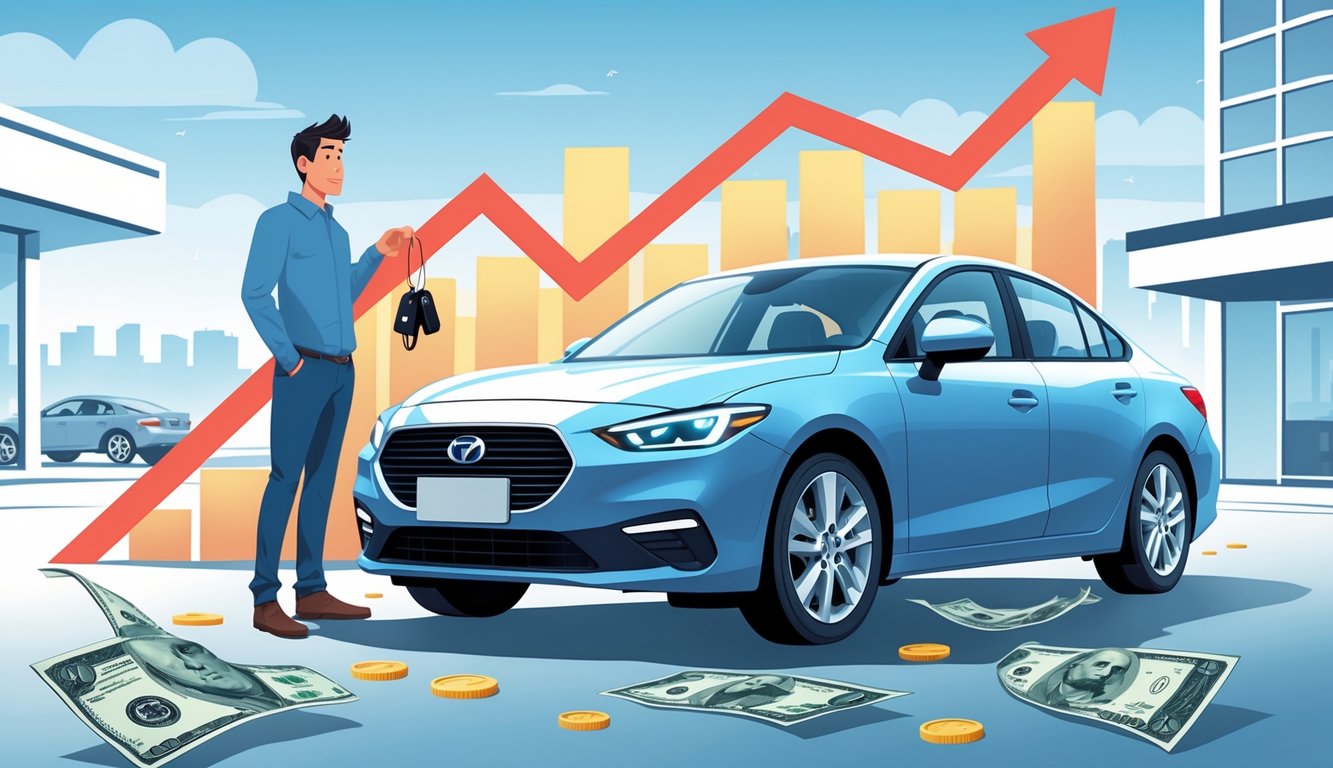
Ignoring Online Reputation and Market Trends
I’m telling you, half the sellers out there are just guessing car values based on vibes, never checking reviews or updated price indexes. Dealers, for all their faults, obsess over metrics and reputation. If you try to outsmart the market without actually reading what’s happening, you’ll lose money and never know why.
The Impact of Online Research
My inbox is full of stories from people who never checked a dealer’s Google rating, trusted some friend’s advice, and then got hit with fake warranties and $1,200 “prep fees.” You can’t compare prices without using Edmunds or Kelley Blue Book. Right now, a 3-year-old car can keep 70% of its value, but people still undersell by thousands because their cousin said the dealer seemed “nice.”
Sure, reputation isn’t everything, but why hand off $25,000 without even Googling the buyer? I always tell people to check for real reviews, complaint histories, and any dealer offering extended warranties. My neighbor sold her Camry without looking up the buyer, then got burned on paperwork and repairs. There’s no shortcut: you have to read real feedback, not just anecdotes, and definitely not trust window stickers.
Adapting to Shifting Market Conditions
It’s wild—SUV trade-in values crash when gas prices spike (which happens every summer, apparently), but sellers still think last winter’s prices matter. If you’re not watching for supply chain hiccups or sudden hybrid demand, you’ll get left behind. Car price depreciation isn’t a straight line; when I sold my Civic in 2023, the value swung $3,000 in six months—all because inventory dried up after some recall rumor.
Sellers ignore tools like Edmunds’ instant appraisal or skip tracking regional price trends. Everyone’s got that friend who says market timing is impossible, but guess who got the worst trade-in at the peak of EV hype? The guy who thought buyers would pay spring prices, ignored trends, and never adjusted. If I ever figure out how to predict which feature will tank a car’s value overnight, I’m out.
Putting Too Much Weight on MSRP
People toss around MSRP like it’s gospel, but it barely matters once you drive off the lot. Cars don’t keep value because of a sticker, and I’ve seen plenty of owners get burned by trusting that number too much.
Why MSRP Isn’t the End-All
You’d think MSRP would be the minimum, right? Nope. Minivans sell above sticker when supply’s tight (remember 2021?), but trucks drop below it the second new models arrive. Dealers don’t care—market swings, demand, and random incentives yank the real price all over the place.
Recently, Class C SUVs held 60%+ of original value after three years, while compact sedans tanked—Edmunds has the data. A finance manager told me: “Most buyers don’t get that destination fees, trims, incentives, and weird lot premiums change the real price, not the sticker.” My neighbor sold his 2018 Toyota for more than MSRP, while my base model Ford got lowballed. Two cars, two totally different outcomes. Inflation, supply chain weirdness, dealer add-ons, auction trends—those matter more than any window sticker. Why does nobody mention that until you’re losing money?
Falling Short on Comparison Shopping
Honestly, I’ve met so many people who sell their cars without checking a single competing listing—just making up numbers. That’s how they end up thousands below market, basically giving away value. One scroll through Edmunds or Kelley Blue Book shows insane price gaps for the same make, model, and year.
How to Evaluate Competing Listings
Been staring at used cars online for so long I’m starting to think I can spot a fake leather seat from a thumbnail. Why is one Honda Accord with 80k miles and leather $4,000 more than another that’s basically its twin, except the seller yells “navigation package” in all caps? And then half these people don’t even bother to check Carfax. Makes no sense.
I mess around with CarGurus’ Instant Market Value thing, sometimes just dump everything into Excel and try to filter out the absolute nonsense. Is that normal? I’ll waste an hour comparing eight Camry SEs, trying to figure out if alloy wheels are really worth the upcharge, or if the extra dealer oil change is just a flex. Private sellers? They’re just guessing. Edmunds actually said—wait, let me check—yeah, they said a thousand bucks difference on the same car just because someone wrote a better ad. That’s not even rare. Mark next door, if he could stand spreadsheets, wouldn’t have given away his CR-V for $2,200 under market just because he forgot to type “Bluetooth.” Bluetooth! How is that even still a thing? And sometimes there’s a “one owner” Civic five minutes away but the ad skips the sunroof—nobody clicks. Sellers like to whine about “the market,” but honestly, half the time it’s just lazy comparison shopping.
